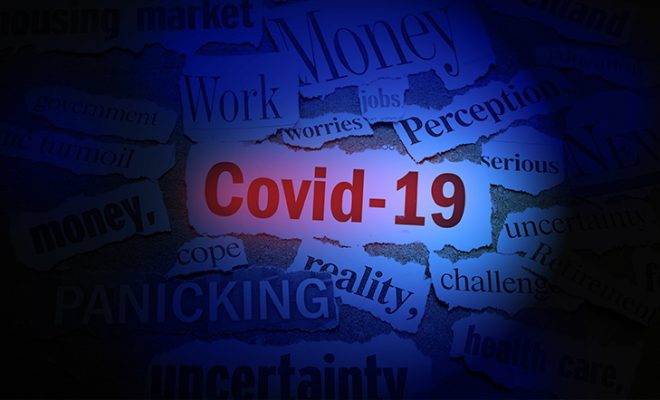Catastrophic Estate Planning mistakes that you must avoid

British Novelist J.K Rowling once said, “To the well-organized mind, death is but the next great adventure.” Your mind will be organized and at peace if you know what is going to happen to your hard-earned wealth/property in your absence. Planning your estate well in advance can be beneficial not just for you but also for your loved ones, whom you leave behind. Many families helplessly end up losing huge chunks of assets due to tax implications and poor planning. Assets that you build in your life can all go down the drain because of tiny, avoidable mistakes! The good news is that with just a little bit of estate planning, and a more cautious approach, you can ensure that your loved ones are well taken care of and they don’t lose out on your belongings.
Table of Contents
10 most common mistakes you make while Planning your Estate
1. Not being prepared
The biggest mistake that people often make is that they put off preparing their will. Caring.com recently conducted a survey and found that 57 % of adults in the U.S. do not have estate planning papers or a will. Not taking matters into your own hands means that you give this power to the state. And the government’s plan may not necessarily be the same as yours!
2. Not paying attention to other policies
Many people don’t realize that the beneficiaries of their retirement plans or life insurance policies are not controlled by their will. For example, if the beneficiary on your life insurance policy is your spouse, and the beneficiary on your will is your child, then the law will consider the policy as the deciding document and give your assets to your spouse. Being mindful of all your documents and regularly reviewing your will can avoid such confusions later.
3. Not having business succession plans
Approximately, only 30 % of family-owned businesses are successfully passed from one generation to another. This survival rate further drops when the business is passed to the third and fourth generation. While tax implications are a major reason for such a low survival rate, it is also good to consider the needs of your children who are a part of your business and those who are not.
4. Not understanding Equal v/s Equitable
The most apparent estate planning mistake that people commit is that they distribute their assets ‘equally’ among their children. Instead, try making a note of all your children and their needs. For example, if you have a child with special needs, leaving them a substantial inherence may cause your child to lose other medical or social security benefits.
5. Leaving estate to a minor
Insurance companies do not allow paying huge inherence amounts to minors. In case you leave your assets to a minor, make sure to appoint a guardian in charge. Another important thing to note here is that in a guardianship, the money is normally handed over to the minor as soon as they turn 18. This could be a very tender age and such an arrangement does not account for the child’s spending habits, the possibility of a future divorce, other credit liabilities, etc. It is advisable to appoint an independent trustee who is in charge of your assets. Having an independent trustee ensures that the court does not force a distribution from your child’s inheritance trust.
6. Not distributing your estate in intervals
Like pointed out earlier, one thing that most of us worry about is what happens to our assets after we are gone? Imagine that you leave your entire life’s savings to your children, assuming they will use it for your grandchildren’s college funds, but instead, they spend all your money and assets on immoral activities in just a few years. To avoid these mistakes, try planning your will in such a way that your children get your estate or money at regular intervals. For example, they could get 1/3rd of the assets when they turn a certain age and then the next 1/3rd after five years. If you know that your children are likely to misuse their inherence, you can also have them drug tested for some years, before they receive their inheritance.
7. Not being crystal clear in estate planning
When you draft your will, be very careful with the words you choose. Avoid making mistakes, for example, do not use terms like ‘all my surviving children’. Instead, mention their names. Include clauses that dictate what happens if a child is deceased. Does your estate go to your grandchildren or does it get distributed amongst your other surviving children?
8. Not giving proper authorities
Estate planning allows you to authorize another person to take your place in case you are incapable of taking financial decisions due to medical reasons. In the event of your incapacity, and not having an authorized guardian, the court may appoint a guardian. This may be time consuming and unpleasant for your family.
9. Not considering income tax
Let’s consider a scenario where you have two children. You leave your life insurance to your daughter and your IRA (Individual Retirement Arrangement) to your son. Life insurance is tax-free, however, the proceeding of IRA may be subject to tax. Your son may end up losing a major chunk of his inherence to taxes. Try and include these aspects in your estate planning to avoid mistakes.
10. Trying to do it all on your own
Imagine losing your entire life’s savings to poor drafts or bad estate planning all because you did not want to pay an attorney and thought of making some budget cuts and doing it all yourself. Drafting wills and taking care of your trusts, etc. can be confusing and misleading. It is good to have a professional take care of these things for you. Not only does it make things easy for you, but it also ensures that your family does not go through a tough time dealing with your will after you are gone!
To sum it up
Estate planning can be easily executed if you are careful and cautious of the small details. Taking care of these tiny details can avoid catastrophic mistakes to take place in the future.
Need some professional assistance for planning your estate? You can reach out to financial advisors. They will ensure that your will does not lose out on essential aspects and that your family goes through no inconvenience after you are gone.
















